KATHMANDU: The fire of dissatisfaction within the CPN-UML has been smoldering, hidden from view, yet very much alive.
While the flames are not visible on the surface, they can be ignited internally, much like chaff that can smolder with the right spark.
The suffocating smoke and oppressive heat of this internal struggle are palpable, yet only become apparent when they finally turn to ashes.
Similarly, although the fire within the UML has been kindled, it remains largely unseen.
Despite increasing discontent with Chairman KP Sharma Oli’s leadership style and his growing aloofness, few have dared to voice their concerns publicly.
Communists believe that contradiction is vital for a party’s survival. They argue that ideological conflict is essential for a vibrant party.
As Oli’s popularity wanes, many leaders are seeking alternatives. Some view former President Bidya Bhandari as a possible successor, though her return to UML politics is fraught with challenges.
If this theory holds true, what ideological contradictions or struggles exist within the UML today?
Following Madhav Nepal’s departure, it appeared that the internal conflict had diminished.
However, recent developments suggest that tensions within Oli’s faction are on the rise, indicating the emergence of a new faction.
As communists assert, contradictions permeate all aspects of life; when one conflict resolves, another emerges.
Initially, after the exit of Madhav Nepal’s faction, it seemed that the internal strife within UML had settled, as there were no alternative leaders to challenge Oli, giving the illusion that the fire had been extinguished.
Yet, discontent has resurfaced even among Oli’s own supporters, revealing fractures within his group.
End of Dissent
When the Madhav Nepal group was part of UML, the ideological struggle was framed as “Oli vs. Madhav.”
After their exit, however, the remaining leaders, known as the “10 brothers,” continued to express differing opinions, indicating that disagreements lingered within the party.
Key figures such as Bhim Rawal, Asta Laxmi Shakya, Yuvraj Gyawali, Ghanashyam Bhusal, Gokarna Bista, Yogesh Bhattarai, Bhim Acharya, Surendra Pandey, and Raghuji Pant had pledged to stay in the party under a 10-point agreement, forming a third faction.
Nevertheless, Bhusal eventually defected to the Nepal-led CPN Unified Socialist Party, feeling sidelined after failing to secure a nomination in the elections.
Bhim Rawal, previously seen as a potential successor to Oli, ascended to the presidency at the party’s 10th Convention.
However, tensions arose when Rawal challenged Oli, leading to his marginalization within the party.
Like Bhusal, Rawal also faced exclusion from electoral candidacy and has remained inactive.
Many leaders refrain from speaking out due to concerns that Oli will retaliate against those who oppose him. Rawal has repeatedly emphasized this point.
Current leaders assert that many still endure Oli’s erratic behavior. For instance, UML Vice Chiair Shakya has not been afforded a decisive role, leaving her position largely passive.
Although she is the party vice chair, she has hesitated to confront Oli about her lack of involvement.
Likewise, Vice Chair Gyawali has also felt neglected. Yogesh Bhattarai, the party secretary from Taplejung, was initially in contention for a ministerial position but was ultimately excluded from the final list, leading to his frustration. Despite his discontent, Bhattarai remains reticent about addressing the issue.
Although UML has participated in the government three times since the last elections, leaders like Madhav Nepal have departed before fully realizing their political ambitions, and they have not been entrusted with significant responsibilities since.
Oli’s supporters, including Mahesh Basnet, Surya Thapa, Secretary Chavilal Vishwakarma, Padma Aryal, Deputy Secretary General Pradeep Gyawali, Senior Vice President Ishwar Pokhrel, and Secretary General Shankar Pokhrel, also face mounting challenges, yet they choose not to speak out.
Even following an alliance with the Nepali Congress, leaders express concern that Oli’s unilateral decisions could jeopardize the party’s future.
Reports suggest that Deputy General Secretary Gyawali recently met with Oli to express the growing dissatisfaction regarding the government’s lack of initiative.
On the other hand, Oli has faced criticism for the government’s lack of effectiveness in rescue and relief efforts following the floods and landslides last September.
As Oli’s popularity wanes, many leaders are seeking alternatives. Some view former President Bidya Bhandari as a possible successor, though her return to UML politics is fraught with challenges.
Many leaders from the UML founding group are currently living at Bhandari’s residence, contemplating their next steps amid the turmoil.
However, a strategy to reintegrate former President Bidya Bhandari into UML remains elusive.
Even though leaders supporting Oli are currently active in Budhanilkantha, they may have to wait until at least the 11th convention to facilitate Bhandari’s return.
Sources indicate that discussions are ongoing about her potential leadership role within UML at that time.
Dispute
Just hours after returning from the United Nations General Assembly, Prime Minister Oli met with Min Bahadur Gurung, the owner of Bhatbhateni Supermarket, at Baluwatar.
Gurung and his wife visited the Prime Minister to announce their decision to donate 10 ropani 14 annas of land in Kirtipur for UML’s new headquarters.
The Gurung couple committed to constructing the building themselves and completing it within a year, suggesting that the foundation stone should be laid during Dashain.
In response, UML leaders Bhim Rawal, along with central members Binda Pandey and Ushakiran Timsina, publicly expressed their dissatisfaction.
Following their objections, UML decided to seek an explanation from the Gurung couple.
However, the Supreme Court intervened, preventing Oli from taking further action against the three leaders, leaving the matter unresolved.
However, political analyst Hari Rokka warns that if left unaddressed, these issues may erode the core principles and ideology of communism in the future.
During a party secretariat meeting, Vice Presidents Gyawali and Shakya commented on the situation but refrained from making any formal statements.
Other party leaders, including Padam Giri, Chief Whip Mahesh Bartaula, Deputy General Secretary Gyawali, Secretary Aryal, Education Minister Bidya Bhattarai, and former Minister Vimala Rai Poudel, have also voiced their dissatisfaction regarding the land donation, though they have chosen not to speak publicly.
In informal discussions, they collectively stated they had no objections.
On the other hand, Oli has faced criticism for the government’s lack of effectiveness in rescue and relief efforts following the floods and landslides last September.
Pressure is mounting to remove ministers from both the UML and Congress parties who have been unable to perform effectively during this crisis.
Additionally, Kathmandu Metropolitan City Mayor Balendra Shah is under fire for his confrontational behavior toward the Prime Minister, prompting further discontent among UML leaders.
Oli is also accused of seeking political revenge against Rabi Lamichhane, the Chairman of the Rastriya Swatantra Party, who previously served as home minister under Oli’s leadership.
Moreover, there are allegations that decisions are being made with undue influence from Congress President Sher Bahadur Deuba and Foreign Minister Arju Rana, with no prior discussion within UML.
This lack of internal dialogue has further fueled dissatisfaction among UML leaders.
Mahesh Bartaula, the Chief Whip of the federal parliament and a staunch supporter of Oli, contends that the party’s decisions are made in consultation with all members.
He claims that those spreading rumors about internal discord are undermining the UML’s integrity and progress.
UML leader Bishnu Rimal argues that there is no conflict with Chairman Oli, claiming that some individuals are merely creating unnecessary noise in light of the government’s effective operation.
Similarly, Communication and Information Technology Minister Prithvi Subba Gurung, a notable figure who has previously challenged Oli, now asserts that there is no conflict within UML.
Where does the conflict go?
It is unlikely that the tensions between UML’s leadership and other party members will manifest immediately.
However, political analyst Hari Rokka warns that if left unaddressed, these issues may erode the core principles and ideology of communism in the future.
He points out that UML has become increasingly apolitical, particularly since the split from the Nepal Communist Party.
With no leaders capable of challenging the Chairman, he questions whether UML has forgotten its foundational ideas and principles.
Rokka suggests that the loss of political culture has led UML to align with various factions for the sake of power, stating, “The leadership of UML has made the future apolitical, driven by power and whims.”
He notes that the party’s alliances seem contingent on convenience rather than ideological compatibility, stating, “The people have not been heard at all. This approach is fundamentally incompatible with our political ideology and program.”
He also stated that taking land from disputed individuals and showing intolerance towards emerging powers contradicts UML’s core principles.
“Min Bahadur is a person under the law, yet the principles and values of UML are being undermined by actions like the Prime Minister donating land,” he remarked.
He emphasized that ideological and alternative leaders have diminished within the party, which ultimately erodes public trust and support for UML.
Rokka pointed out that since Oli cannot tolerate leaders who challenge the party’s differences, there has been a lack of ideological debate regarding the leadership’s vision.
“It is evident that they are acting out of self-interest, which is detrimental. This behavior jeopardizes the future of both the party and its constituents. Alternative and ideological leaders must have the courage to speak out against the leader’s wrongdoings. Is he truly a leader in UML?”
However, historically, Bhandari and Oli have been aligned, which has led to a lack of trust in Bhandari from the other leaders. Rawal is also quietly active within the party.
He adds, “Even if he holds a political position, he is not a leader when UML lacks a stream of ideas. There is a significant level of dissatisfaction within UML; if this continues, the party will decline.”
“Just a few months before the 11th convention, UML either needs to reform or it will continue on its downward trajectory. The recent demise of ideological and alternative leadership within UML is concerning and will harm the party.”
Some leaders contend that such issues are typical within a Communist Party, insisting that there is no internal conflict.
UML leader Bishnu Rimal argues that there is no conflict with Chairman Oli, claiming that some individuals are merely creating unnecessary noise in light of the government’s effective operation.
“If the government falters, it is still running smoothly for now. The work of apprehending criminals and fraudsters has begun. These rumors about UML and Oli are baseless,” Rimal stated.
“Our Chairman has not strayed from the party’s decisions; everything is guided by advice.”
Is an alternative to Oli emerging before the 11th convention?
The UML’s 11th convention is scheduled for the first week of December 2026.
Constitutional provisions allow for a six-month extension under special circumstances.
As of now, UML has not made any decisions regarding the convention. According to leaders close to Oli, he is preparing to hold the convention only after the 2024 elections.
Consequently, if the convention occurs after the elections, only former President Bhandari and leader Bhim Rawal appear poised to challenge him for the presidency.
Recently, Bhandari, who is dissatisfied with Oli, has begun to express his views more openly.
However, historically, Bhandari and Oli have been aligned, which has led to a lack of trust in Bhandari from the other leaders. Rawal is also quietly active within the party.
So far, aside from these two, no other leaders have emerged as contenders against Oli.


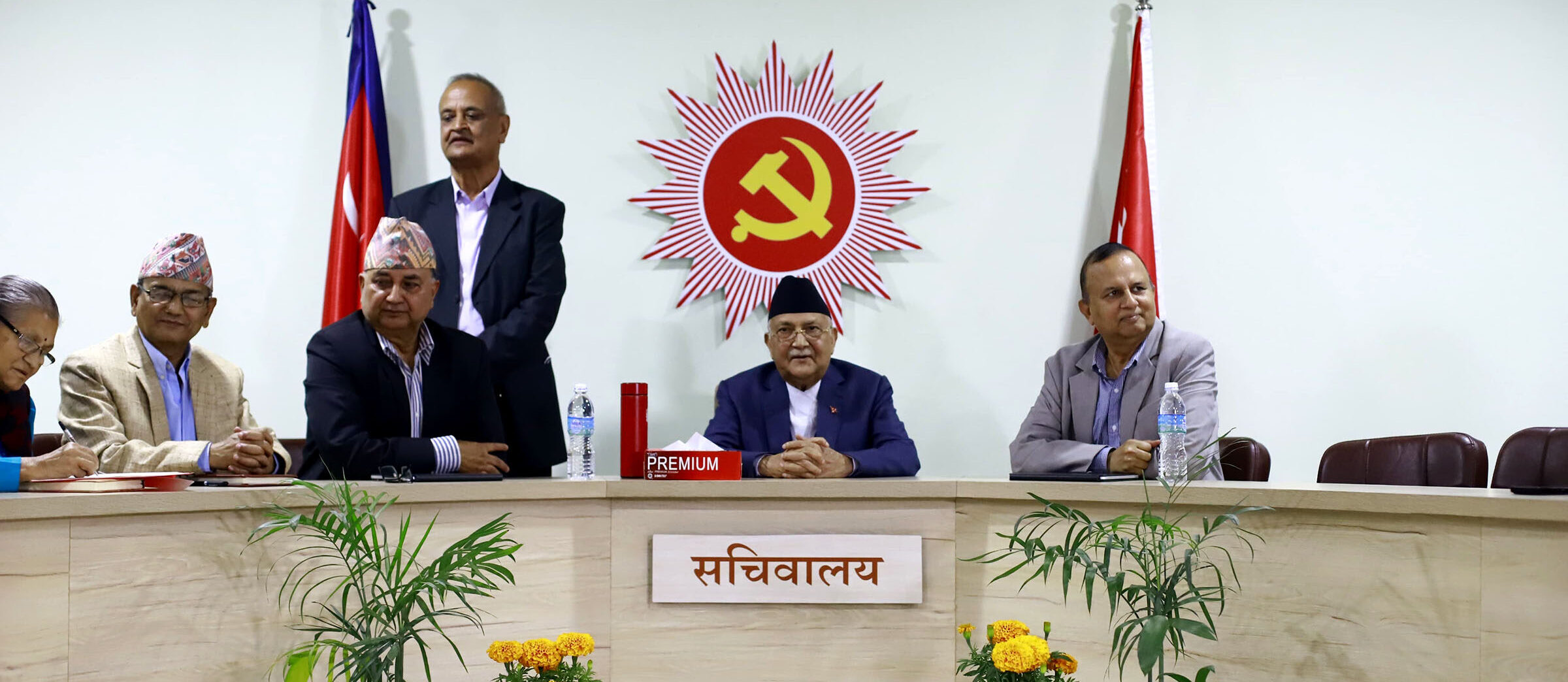
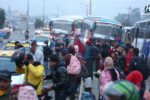
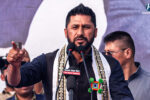
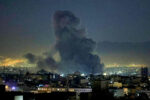

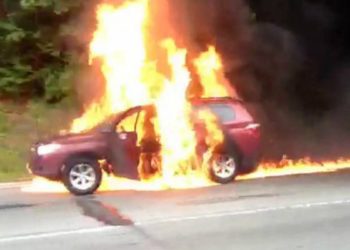

Comment